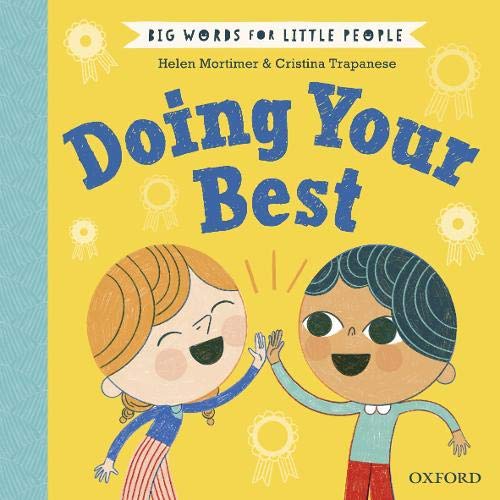ISBN-10: 0192777645
ISBN-13: 9780192777645
Empowering words that help children to express their emotions.
This little book on Doing Your Best is part of an exciting series exploring big topics with young children in a way that feels good.
Using carefully chosen words and phrases, such as ‘aim high’ and ‘teamwork’, it creates a special moment for grown-ups and young children to focus on what it means to be a do your best and be proud of yourself.
Children can discover and understand new words to help them to talk about the ups and downs of first experiences and new emotions with confidence.
The engaging art style, fun characters and hardback picture book feel make this series accessible and perfect to share.
Each book includes reassuring tips on how to enjoy these books, encourage conversation and build language confidence. This series is special not only because it focuses on feelings in a child-friendly way, but also because it’s from Oxford, it’s packed with educational goodness that helps children develop and grow.
Build language confidence
Engaging picture books with handpicked words to help young children talk about the ups and downs of first experiences and new emotions with confidence.
Packed with educational goodness
Using Oxford University Press’s language expertise, these deliver big and small words to help children develop and grow.
Perfect for sharing and reading together
Picture book rhythm with fun illustrations and engaging narrative flow, helping grown-ups and young children talk together in a gently supportive way.
Get more from the books
Includes ideas at the back of the book to help grown-ups talk about feelings with children and an age-appropriate glossary to help children understand more challenging words.
‘I love these books (and so do my sons!). Not only are they beautifully illustrated but the content is pitched just right for having rich conversations with young children about values like kindness and bravery. These books will be a great resource for teachers and parents alike, helping them equip their children with the vocabulary they’ll need to understand and express their emotions better.’ – Adrian Bethune, Teachappy

